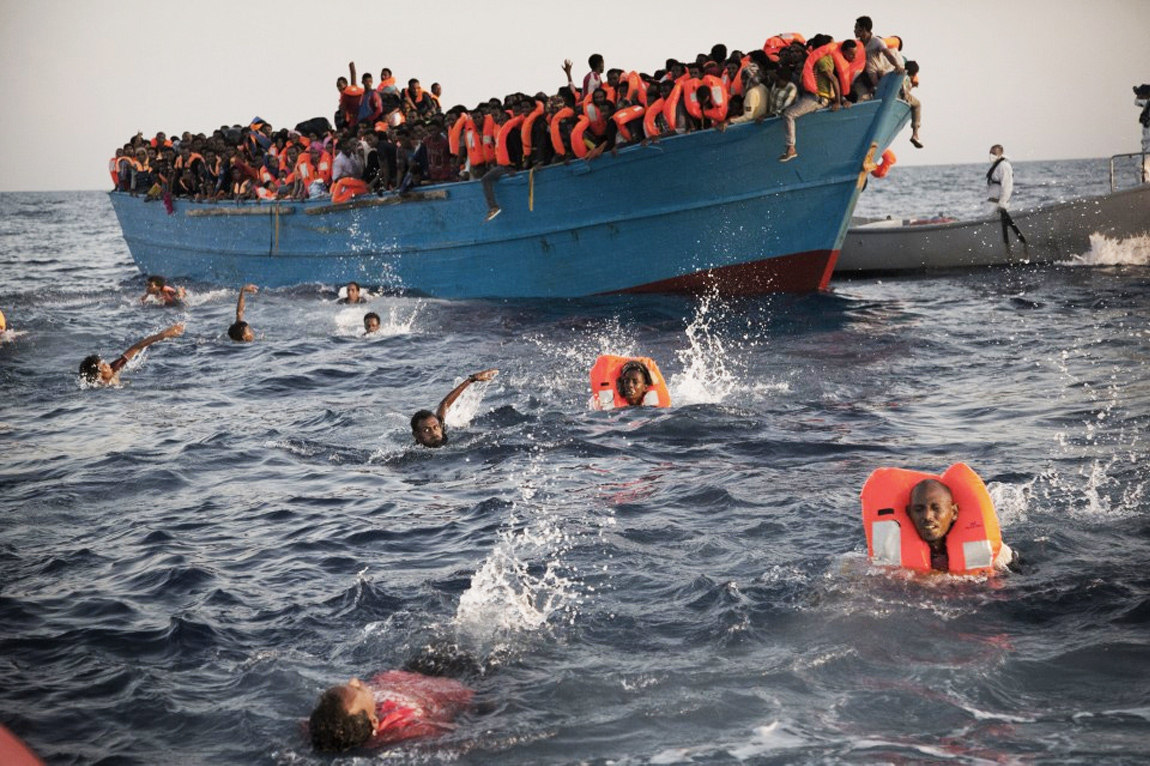Pascal Brice is the director-general of the French Office for the Protection of Refugees and Stateless Persons.
PARIS — At a Paris summit in August last year, E.U. representatives and the governments of France, Italy, Germany, Spain, Niger, Chad and the U.N.-backed government of Libya agreed to a new plan to address the tragedies endured by migrants who travel through Libya and across the Mediterranean. Part of the agreement was to send “protection missions” to Africa, with the goal of resettling African refugees in Europe after evaluating them in the countries of transit in the Sahel. The French government announced it would resettle 3,000 people in France by the end of 2019.
To that end, the French Office for the Protection of Refugees and Stateless Persons (OFPRA) has been vetting asylum seekers who are already featured on U.N. Refugee Agency (UNHCR) lists on African soil so that they don’t have to make the difficult journey to Europe.
OFPRA officers who have been deployed in Italian ports since 2015 are familiar with the catalogue of horrors people endure on the desperate voyage across the Mediterranean, as are those at the OFPRA head office in Paris who interview survivors every day. In many cases, the journey through Libya causes the survivors as much distress as the dangers of the Mediterranean.
In close collaboration with UNHCR, OFPRA teams traveled to Niger twice and to Chad once since October of last year. In total, they were able to interview nearly 400 people, who have since started arriving in France. Among these are the first 50 people to be evacuated from Libya by UNHCR: men, women and children from Eritrea, Darfur and several other African countries who have been subjected to rape, torture and kidnapping.
These missions are inspired not only by the conventional resettlement programs run by UNHCR and its partners such as the United States and Canada for many years but in addition by the missions to resettle Syrian refugees. OFPRA officials have also travelled to Egypt, Jordan, Lebanon and Turkey since 2014 and continue to do so regularly in order to interview the most vulnerable Syrian asylum seekers — notably sick children and single women — in preparation for their arrival in France. Thousands of individuals have been interviewed by OFPRA in these countries, and many have since arrived in France. The French government intends to welcome 7,000 more Syrian refugees by 2019.
Further measures must be taken, including working to settle conflicts, putting an end to persecution in the countries of origin, working with transit countries, tackling the networks of smugglers and developing more legal means of access (like resettlement programs), all while fully observing the right to asylum on European soil. This is what Europe’s history, values and laws require us to do.
The OFPRA missions are an important way to help the victims of persecution and conflict. They make it possible to provide assistance to transit states while preventing refugees, especially the most vulnerable, from undertaking a terrible and dangerous voyage. Rather than an outsourcing of the right to asylum beyond European borders, missions such as those led by OFPRA complement the necessary full observance of this right in Europe.
“Non-refoulement” — which provides that no one expel or return a refugee against his or her will, in any manner whatsoever, to a territory where he or she fears threats to life or freedom — must be enforced and applied to asylum seekers on European soil, where their application for asylum should be fully examined. Europeans must move forward to fully protect asylum seekers on their soil in a more harmonized, effective manner that is consistent with the law.
In a speech at the Sorbonne last September, French President Emmanuel Macron paved the way for a European Asylum Agency that would bring together the best aspects of each national agency — whether the territorialization of the German arrangements, the close integration of the Dutch system or the independence of OFPRA, which ensures that individual decisions are based exclusively on the criteria of asylum laws.
Today, the success of OFPRA’s rescue missions is due to the hard work done together with the UNHCR. It now depends on the latter’s capacity to intervene under the right conditions in Libya and also on the commitment of E.U. member states and members of the international community to take in their share of the resettlement of refugees, particularly by offering support to the Niger authorities in caring for Libyan survivors.
The jarring and distressing images of slave markets in Libya exposed by CNN are still raw in the public’s eye. The international community must take responsibility for getting as many of these refugees as possible out of this terrible situation and ensure greater compliance with the right to asylum.
This was produced by The WorldPost, a partnership of the Berggruen Institute and The Washington Post.




